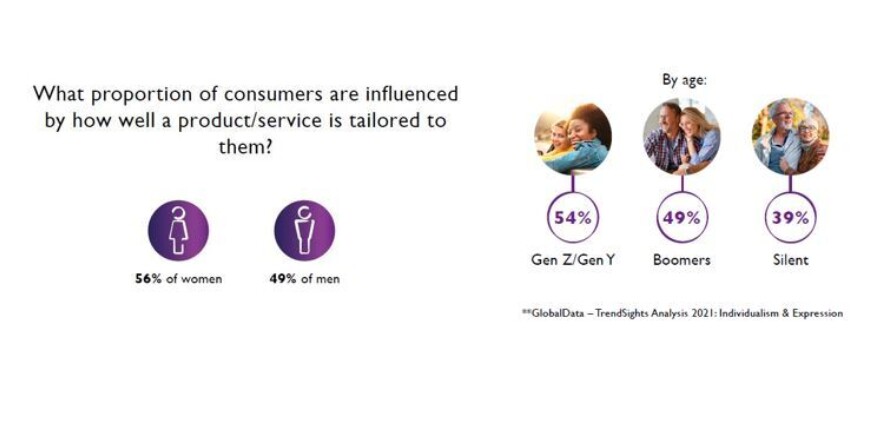The power of personalisation
March 14, 2022
During the pandemic, personalisation has become more important than ever to consumers, and – according to two recent studies by leading market analysts – brands need to get on board with this trend to avoid losing out.

‘Individualism and Expression’ has been identified by GlobalData** as one of the eight mega-trends driving consumer behaviour, while McKinsey* has revealed that the majority of consumers expect companies to deliver personalised interactions and get frustrated when they fail to do this. With faster-growing companies driving 40% more of their revenue from personalisation than their slower growing counterparts, it’s clear that personalisation punches above its weight in the marketing mix.
Covid-19 has played a role in accelerating this trend. According to McKinsey, three-quarters of consumers have tried switched to a new shop, product or buying method over the past 18 months. GlobalData’s research shows that the pandemic has made product discovery and the purchasing experience feel more intimate, while spending caution has prompted consumers to focus on product benefits that specifically serve their needs.
Personalised products bring advantages on both sides. Consumers benefit from products that fit their individual needs more closely, while the perceived uniqueness of a self-designed product appeals to their need for self-differentiation. For manufacturers, personalised products can command higher price premiums, drive loyalty and create a deeper emotional bond with consumers.
What’s clear is that companies need to be highly aware of their target audience in order to create a meaningful bond with them. While this may be through a personalised product or an exciting experiential experience, consumers today recognise that their behaviours – including the way they shop – can bring about social change. Brands can effectively create brand loyalty by having and communicating an ethos that resonates with the target audience, and by promoting their support for social causes and commitment to sustainability issues.
